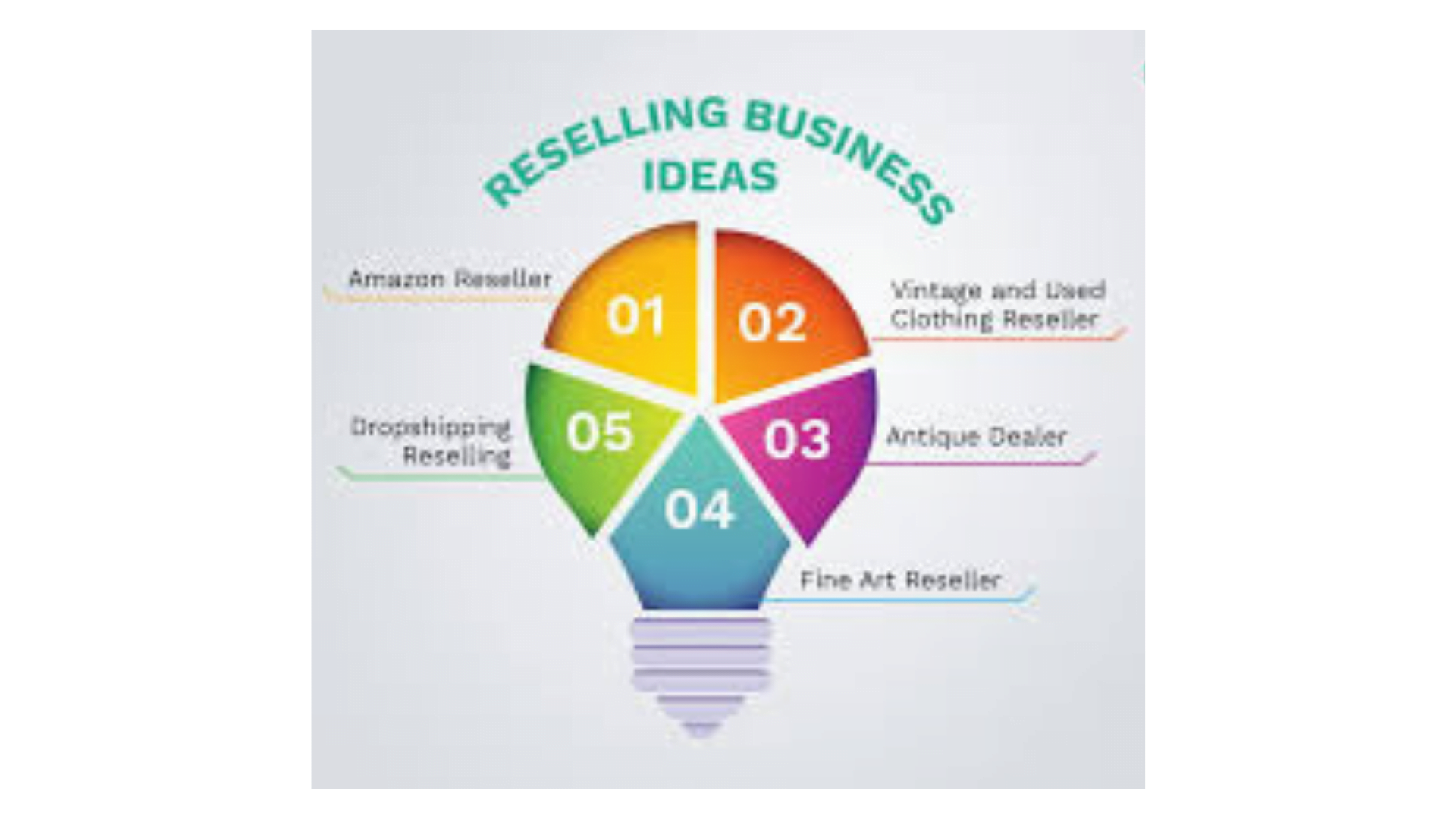Boost Your Income: Guide to Online Reselling has become a popular way for individuals to make money from the comfort of their own homes. This business model involves purchasing products at a lower price and then selling them at a higher price online. With the rise of e-commerce platforms such as eBay, Amazon, Poshmark, and Etsy, online reselling has become more accessible than ever before.

Online reselling has become a popular and profitable business model in recent years, driven by the growth of e-commerce platforms and the increasing consumer demand for secondhand goods. Whether you’re looking to start a side hustle or build a full-fledged business, online reselling offers a flexible way to earn money by selling products through digital marketplaces. This article explores the essentials of online reselling, including the business model, platforms, strategies for success, and tips for getting started.
What is Online Reselling?
Online reselling involves purchasing products at a lower price and then selling them at a higher price through online platforms. The products can be new, used, or refurbished, and the reselling process can involve anything from clothing and electronics to antiques and collectibles. Resellers often source their inventory from various channels, such as thrift stores, garage sales, clearance sales, wholesalers, or even their personal belongings.
The Online Reselling Business Model
The reselling business model is relatively simple:
- Sourcing Products: Resellers find products that they believe can be sold for a profit. The goal is to buy low and sell high. Products can be sourced from thrift stores, liquidation sales, online marketplaces, or direct from manufacturers.
- Listing Products: After acquiring inventory, resellers list the products on online platforms. The listings include photos, descriptions, prices, and shipping options. The quality of these listings can significantly impact sales.
- Selling Products: Once a buyer makes a purchase, the reseller is responsible for processing the order, packaging the item, and shipping it to the customer.
- Customer Service: Providing good customer service is key to maintaining a positive reputation. This includes handling returns, answering inquiries, and ensuring a smooth transaction process.
- Profit: The profit is the difference between the selling price and the cost of goods sold, minus any fees associated with the platform, shipping, and other expenses.
Popular Online Reselling Platforms
There are numerous platforms where resellers can list and sell their products. Some of the most popular ones include:
- eBay: One of the oldest and most established platforms for reselling, eBay allows users to sell both auction-style and fixed-price items. It’s known for its wide range of categories and international reach.
- Amazon: Amazon’s FBA (Fulfillment by Amazon) program allows resellers to send their products to Amazon’s warehouses, where the company handles storage, packing, and shipping. This platform is particularly popular for selling new or refurbished items.
- Poshmark: A platform focused on fashion, Poshmark is ideal for selling clothing, shoes, and accessories. It’s known for its social aspect, where users can follow, share, and comment on each other’s listings.
- Etsy: Etsy is a marketplace for handmade, vintage, and unique goods. It’s a great platform for resellers who specialize in niche products, vintage items, or craft supplies.
- Facebook Marketplace: Facebook Marketplace allows users to buy and sell locally. It’s free to use, making it a popular option for resellers who want to avoid platform fees.
- Depop: Popular among younger audiences, Depop is a social shopping app that focuses on unique fashion items, vintage clothing, and streetwear.
Strategies for Success in Online Reselling
To succeed in online reselling, it’s important to develop effective strategies for sourcing, pricing, marketing, and customer service. Here are some tips to help you thrive in the online reselling business:
1. Research and Find a Niche
Before diving into online reselling, it’s crucial to research the market and find a niche that interests you and has demand. Specializing in a particular category, such as vintage clothing, electronics, or collectible toys, can help you stand out from the competition and attract a loyal customer base.
2. Source Quality Products
The success of your reselling business heavily depends on the quality of the products you sell. Make sure to source items that are in good condition, have resale value, and align with your chosen niche. When sourcing from thrift stores or clearance sales, inspect items carefully to ensure they are free of damage and defects.
3. Price Competitively
Pricing your products competitively is key to attracting buyers. Research similar items on your chosen platform to determine the average selling price. Consider factors such as the condition of the item, brand, and demand when setting your price. Remember to factor in platform fees, shipping costs, and other expenses to ensure you’re making a profit.
4. Create Attractive Listings
The quality of your product listings can significantly impact your sales. Take clear, high-quality photos of your items from multiple angles, and write detailed descriptions that highlight the features, condition, and any flaws. Use relevant keywords to improve the visibility of your listings in search results.
5. Provide Excellent Customer Service
Good customer service can lead to positive reviews, repeat customers, and a strong reputation. Respond to inquiries promptly, ship items quickly, and handle any issues or returns professionally. Building trust with your customers is essential for long-term success.
6. Leverage Social Media and Marketing
Promoting your listings on social media can help you reach a wider audience and drive sales. Platforms like Instagram, Facebook, and Pinterest are great for showcasing your products and connecting with potential buyers. You can also use paid advertising to boost visibility and attract more customers.
7. Keep Track of Finances
Keeping accurate records of your sales, expenses, and profits is crucial for managing your reselling business. Use accounting software or spreadsheets to track your income and expenses, and make sure to set aside money for taxes. Understanding your financials will help you make informed decisions and grow your business.
8. Stay Organized
As your reselling business grows, staying organized becomes increasingly important. Develop a system for managing inventory, tracking orders, and handling customer inquiries. Staying organized will help you manage your time effectively and ensure a smooth operation.
Challenges of Online Reselling
While online reselling can be profitable, it also comes with its own set of challenges:
- Competition: The online marketplace is crowded, and standing out among the competition can be difficult. Building a unique brand and offering excellent customer service are ways to differentiate yourself.
- Market Fluctuations: Trends and demand can change rapidly, affecting the value of your inventory. Staying up to date with market trends and being adaptable is key to maintaining profitability.
- Time-Consuming: Reselling can be time-consuming, especially if you’re sourcing products, creating listings, and handling customer service on your own. Automation tools and outsourcing certain tasks can help manage the workload.
- Platform Fees: Many reselling platforms charge fees for listing items, processing payments, and shipping. These fees can eat into your profits if not carefully managed.
- Inventory Management: Keeping track of your inventory, especially as it grows, can be challenging. Proper inventory management is essential to avoid overselling or understocking.
Getting Started with Online Reselling
If you’re interested in starting an online reselling business, here are some steps to help you get started:
- Choose Your Niche: Decide on the types of products you want to sell. Consider your interests, market demand, and the availability of inventory.
- Select a Platform: Choose one or more online marketplaces that align with your niche and target audience. Create an account and familiarize yourself with the platform’s policies and fees.
- Source Inventory: Start sourcing products for resale. Visit thrift stores, garage sales, or online auctions to find items at a low cost. You can also consider dropshipping, where you sell products without holding inventory, as a low-risk option.
- Set Up Your Store: Create your online store by listing your products, writing descriptions, and uploading photos. Ensure that your store is professional and easy to navigate.
- Market Your Products: Promote your listings through social media, email marketing, and online advertising. Build a brand presence to attract more customers.
- Manage Sales and Shipping: When you make a sale, process the order quickly and ship the item promptly. Use reliable shipping services to ensure customer satisfaction.
- Monitor Performance: Regularly review your sales data, customer feedback, and financials to identify areas for improvement. Adjust your pricing, sourcing strategies, and marketing efforts as needed.
Conclusion
Online reselling offers a flexible and potentially lucrative business opportunity for those willing to put in the time and effort. By carefully sourcing products, creating compelling listings, and providing excellent customer service, you can build a successful reselling business. Whether you’re looking to earn extra income or create a full-time venture, online reselling is a dynamic and accessible way to tap into the growing world of e-commerce.
FAQ
What is online reselling?
Online reselling is a lucrative opportunity for both new and experienced business owners, especially if you don’t want to conduct your own product research and development. You can resell wholesale products, as well as used and specialty items, through your own online storefront and third-party platforms.
Who is the biggest online reseller?
Amazon
Amazon. Among the most trusted online marketplaces, Amazon is the world’s largest. The company operates in over 20 countries and has over 300 million active customers.
What does FBA mean?
Fulfillment by Amazon
Fulfillment by Amazon (FBA) is a program that lets you outsource order fulfillment to Amazon and offer customers free, two-day shipping through Prime.





